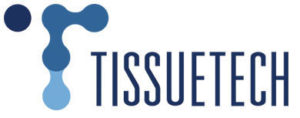 Amniox Medical, a TissueTech company involved in the research of the clinical application of human birth tissue-based products, recently announced that Yun Guan (Johns Hopkins University School of Medicine, Baltimore, USA) has been awarded a five-year R01 grant from the National Institutes of Health (NIH) for a study titled “Birth tissue products for non-opioid treatment of post-surgical pain.” Guan and his team will study the efficacy and molecular mechanism whereby human birth tissue promotes wound healing and suppresses pain after surgical procedures. TissueTech will serve as a sub-contractor on the project.
Amniox Medical, a TissueTech company involved in the research of the clinical application of human birth tissue-based products, recently announced that Yun Guan (Johns Hopkins University School of Medicine, Baltimore, USA) has been awarded a five-year R01 grant from the National Institutes of Health (NIH) for a study titled “Birth tissue products for non-opioid treatment of post-surgical pain.” Guan and his team will study the efficacy and molecular mechanism whereby human birth tissue promotes wound healing and suppresses pain after surgical procedures. TissueTech will serve as a sub-contractor on the project.
Earlier studies conducted by Guan in collaboration with TissueTech suggest that TissueTech human birth tissue allografts may promote wound healing while reducing pain sensitisation. “The long-term goal of this research is to demonstrate the efficacy, receptor mechanisms, and safety of human birth tissue as well as the major matrix component, i.e., HC-HA/PTX3 in the birth tissue, in promoting wound healing and inhibiting post-surgical pain,” says Guan. “I am especially proud to collaborate with Scheffer Tseng and his team at TissueTech on this initiative. In the context of our nation’s current opioid epidemic, health care providers face challenges of simultaneously optimising postoperative pain management and limiting opioid use after surgery. Modifiable risk factors and novel non-opioid treatment options can reduce the risk of chronic opioid use after surgery. This is one reason that this study is so important.”
“Our collaborative efforts using various pre-clinical models also disclose that HC-HA/PTX3, a key bioactive compomnet in the birth tissue, is responsible for promoting regenerative healing by curtailing surgically-induced inflammation and nociceptive pain at the same time in this pre-clinical study,” says Tseng, the chief technology officer of TissueTech.
The Research Project Grant (R01) is the original and historically oldest grant mechanism used by the NIH. It provides support for health-related research and development based on the mission of the NIH, which is to seek fundamental knowledge about the nature and behaviour of living systems and the application of that knowledge to enhance health, lengthens life, and reduce illness and disability.












